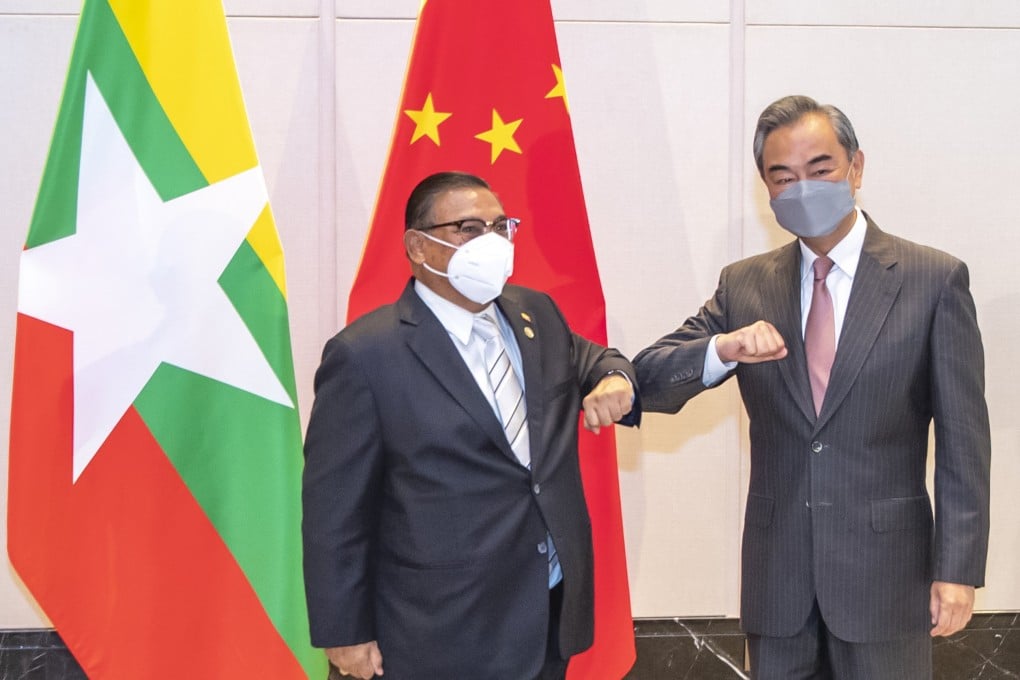Are formal interactions with China helping legitimise Myanmar’s junta in the eyes of the world?
- A recent Chinese embassy statement referring to coup architect Min Aung Hlaing as the ‘leader of Myanmar’ is among the exchanges decried by the shadow National Unity Government
- But analysts say while there are concerns over Beijing’s actions, they should not be over-interpreted – and Asean’s next moves could play a significant role in how the regime is perceived

More than 420 civil society organisations on Thursday condemned the actions taken by China since June 5 to acknowledge Senior General Min Aung Hlaing – the architect of the coup – and the military regime as the “leaders” of Myanmar.
The National Unity Government (NUG), a shadow administration comprising allies of the ousted civilian government, has raised an outcry – but analysts say that while there are some valid concerns over Beijing’s actions, they should not be over-interpreted.
The NUG, which includes pro-democracy figures and lawmakers from the ousted National League for Democracy (NLD) who are in hiding or in exile following the coup, has insisted that it should be recognised as Myanmar’s legitimate government. This has not been forthcoming from the international community, though Western countries have openly held talks with the group and targeted economic sanctions and other efforts to play down the junta’s legitimacy are under way.
The most high-profile interaction between the Myanmar military and China took place during talks in Chongqing this week between Southeast Asian foreign ministers and their Chinese counterpart, Wang Yi.

Statements released by the Chinese foreign ministry quoted Wang Yi – who was present at both discussions – as saying that “China has supported, is supporting, and will support Myanmar in choosing a development path that suits its own circumstances”.